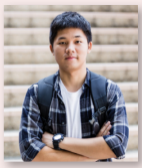Giải SGK, SBT Unit 2. Live and learn English Discovery
Giải SGK, SBT Unit 2 English Discovery
1. Discuss how good you are at remembering the different things in the box.
(Thảo luận về khả năng ghi nhớ những thứ khác nhau trong hộp của bạn.)
|
dates and times English words faces (ngày và giờ) (từ Tiếng Anh) (các khuôn mặt) items on a shopping list names song lyrics (các mặt hàng trong danh sách mua sắm) (tên) (lời bài hát) |
|
VOCABULARY FOCUS (TẬP TRUNG TỪ VỰNG) sharpen a skill (mài giũa một kỹ năng) be left unconscious (bị bất tỉnh) be found unconscious (được tìm thấy bất tỉnh) be hit by lightning (bị sét đánh) fall into a coma (rơi vào trạng thái hôn mê) come out of a coma (thoát khỏi cơn hôn mê) get an urge (nhận được sự thôi thúc) regain consciousness (tỉnh lại) remain a mystery (vẫn là một bí ẩn) solve a mystery (giải quyết một bí ẩn) suffer an injury (bị chấn thương) recover from an injury (hồi phục sau chấn thương) have acquired (đã có được) |
4. Complete the questions with the correct form of the verbs in VOCABULARY FOCUS. Then answer the questions.
(Hoàn thành các câu hỏi với dạng đúng của động từ trong VOCABULARY FOCUS. Sau đó trả lời các câu hỏi.)
1. What aspects of the human brain __________ a mystery?
2. Where was Jason Padgett when he was attacked and __________ unconscious?
3. How common is it for savants to lose the new skills they have __________?
4. Why did Ben McMahon ____________ a coma?
5. What was Orlando Serrell doing when he _________ a head injury?
5. Complete the expressions with the words in the box. Use a dictionary if necessary. Then listen, check and repeat.
(Hoàn thành các câu với các từ trong hộp. Sử dụng từ điển nếu cần thiết. Sau đó nghe, kiểm tra và lặp lại.)
|
behind on rack have |
1. be the brains behind sth = be responsible for inventing or organising sth
(à bộ não đằng sau sth = chịu trách nhiệm phát minh hoặc tổ chức sth)
2. brainstorm sth = discuss (new) ideas
(brainstorm sth = thảo luận các ý tưởng (mới))
3. brainy = very intelligent (informal)
(thông minh = rất thông minh (thân mật))
4. __________ a brainwave = suddenly think of a good idea
5. have sth _________ the brain = keep thinking constantly about sth
6. _________ your brains = try very hard to remember or to solve sth
4. Match the verbs in the box with verb patterns 1- 4 in GRAMMAR FOCUS I. Check the lists on page 116 if you are not sure.
(Nối các động từ trong khung với các mẫu động từ 1- 4 trong TRỌNG TÂM NGỮ PHÁP I. Hãy kiểm tra danh sách ở trang 116 nếu bạn không chắc chắn.)
|
advise allow arrange avoid can't afford can't help can't stand cause decide encourage expect fancy force imagine intend let manage offer refuse remind seem spend / waste time urge warn (not) |
2. Complete the LANGUAGE FOCUS with the examples in blue in Texts 1 and 2.
(Hoàn thành TRỌNG TÂM NGÔN NGỮ với các ví dụ màu xanh lam trong Văn bản 1 và 2.)
LANGUAGE FOCUS
Register - formal and informal language
|
Formal |
Informal |
|
No contractions or abbreviations: I have been thinking … To be confirmed Greater use of the Passive: (3) _____________ More use of indirect questions: Do you think you could say a few words? |
Contractions and abbreviations: (1) I have been thinking … (2) _____________ Greater use of the Passive: We’ll follow this … More use of direct questions: (4) _____________
|
|
Formal |
Informal |
|
More complex noun phrases: light refreshments More verbs of Latin origin: (6) _____________ Complex prepositional phrases: a reception (7) _____________ the exchange group More formal linkers: (8) _____________ incidentally |
Simpler noun phrases: More phrasal verbs: come in Simple prepositions: a welcome party for the exchange students Neutral linkers: also BTW (by the way) |
1. Complete the headings in Thu's CV with the phrases in the box.
(Hoàn thành các tiêu đề trong CV của Thu bằng các cụm từ trong khung.)
|
Education and qualifications Interests (Trình độ học vấn) (Sở thích) Employment history Personal profile (Quá trình công tác) (Hồ sơ cá nhân) Referees Skills and achievements (Trọng tài) (Kỹ năng và thành tích) |
From: thunguyen@mymail33.com
Subject: Thu Nguyên - summer work application
Attachments: Thu Nguyen CV
Dear Ms. Trang,
I am writing in response to your online advertisement seeking staff for your kindergarten's summer school programme. I wish to apply for the position of children's activity coordinator.
I am an eighteen-year-old childcare student and I am passionate about working with children. I intend to pursue a career as a kindergarten teacher when I finish my education. With this in mind, I hope to gain as much relevant experience as possible while I am still a student. I would welcome the opportunity to work with and learn from a successful organisation. such as your kindergarten.
I gained considerable work experience at a local kindergarten last summer. During my work placement there, I worked alongside teachers, contributed to classes and supervised the children at break times. I also sat in on staff meetings and coordinated a very successful sports day. Additionally, as a keen athlete and artist, I feel confident I possess relevant skills and would be well suited to the position.
I would be delighted to attend an interview at your convenience and have attached my CV for your consideration. Please do not hesitate to contact me if you require any further information.
Yours sincerely,
Thu Nguyễn.
|
WRITING FOCUS Organising a CV • A CV should be one to two pages long. • Save space and make your CV concise by avoiding full sentences. • Use headings and bullet points to organise your CV logically. • Use positive language to describe your skills and experience. • Choose referees linked to your education and work experience. • Check whether a photo is required in the country where you are applying for a job. |
|
TẬP TRUNG VIẾT Tổ chức CV • CV nên dài từ một đến hai trang. • Tiết kiệm chỗ và làm cho CV của bạn ngắn gọn bằng cách tránh dùng các câu đầy đủ. • Sử dụng các tiêu đề và gạch đầu dòng để sắp xếp CV của bạn một cách hợp lý. • Sử dụng ngôn ngữ tích cực để mô tả kỹ năng và kinh nghiệm của bạn. • Chọn người giới thiệu có liên quan đến trình độ học vấn và kinh nghiệm làm việc của bạn. • Kiểm tra xem quốc gia nơi bạn đang xin việc có yêu cầu phải chụp ảnh hay không. |
3. Match the definitions with the words in the box.
|
bully |
disruptive |
dyslexic |
|
gifted |
lenient |
strict |
|
self-disciplined |
swot |
1. causing problems and preventing something from continuing in its usual way disruptive
2. having a natural ability to do things well
3. not strict in the way you punish someone or the standards you expect
4. able to make yourself do the things you know you have to do
5. someone who uses their strength or power to or hurt someone weaker than them
6. someone who spends a lot of time studying and seems to have no other interests
7. expecting people to obey rules or do what you say
8. having a condition that makes it difficult to read or spell
4. Complete the text with the correct form of the words that describe teachers and students in Exercise 3.
(Hoàn thành bài đọc sau với dạng đúng của các từ mô tả giáo viên và học sinh trong Bài tập 3.)
HAVE YOUR SAY!
Students say...
 |
Our teachers are always telling people off, they should be more (1) lenient! I don’t often get into trouble because I’m (2) _____ and I always do my work. I’m not a (3) _____ though; I don’t spend all my time studying. But not everyone’s like me. Teachers should help students develop their learning skills and critical thinking, not just tell us facts! |
 |
I really struggle with reading because I’m (4) _____, but all my teachers have been brilliant! They’ve taught me different ways to improve my reading skills and supported my learning both at school and at home using online tools. |
 |
Teachers say… I‘m quite a (5) _____ teacher and I think pupils should do what they’re told. It annoys me when (6) _____ students interrupt, shout and mess around. I also dislike (7) _____ who threaten other students physically or verbally. I don’t tolerate it in my classroom. I enjoy teaching all my students, hut it’s a real pleasure to teach (8) _____ students who make strong academic progress. |
3. Complete the sentences with the correct tense, Past Simple or Past Perfect, of the verbs in the box.
|
prescribe |
receive |
graduate |
fall |
|
explain |
struggle |
overcome |
1. Although the teacher had explained the concept of dysgraphia, I still found it difficult to write neatly.
2. My doctor _____ medication to help me focus after I had admitted to having ADHD.
3. As a child, I _____ behind in mathematics class by the time I was diagnosed with dyscalculia.
4. My classmate told me about her experiences with dyscalculia after she _____ a diagnosis
5. Although I had worked closely with a tutor, I still _____ with certain grammatical structures.
6. By the time he _____ from high school, he _____ many challenges related to his learning difficulties.
3. Complete the phrases with the words in the box.
|
back |
bear |
bell |
draw |
|
escape |
heart |
slip |
1. to slip sb’s mind = to forget about sth
2. to think _____ to sth = to try to recall an event
3. to _____ you = to try to think of something but not be able to
4. to learn by _____ = to memorise sth
5. to _____ sth in mind = to remember sth
6. to _____ a blank = to be unable to remember sth
7. to ring a _____ = to sound familiar
4. Complete the text with the correct form of the verbs in the box.
(Hoàn thành bài khóa sau với dạng đúng của động từ trong hộp.)
|
forget / do |
hear / Mum and Dad / talk |
|
stop / think |
remember / fall |
|
try /count |
try /get |
When I was little, I (1) remembered falling asleep as soon as my head hit the pillow most nights. I recall the comfort of (2) _____ downstairs and how the faint sound of their voices used to send me to sleep almost immediately. These days, I find it a lot more difficult. To my mind, there is nothing more frustrating than lying in bed (3) _____ to sleep. Sometimes, I can't (4) _____ about school and exams. I worry that I might have (5) _____ some homework for one of my subjects or some other trivial thing. I (6) _____ sheep once, but it didn't work. I ended up worrying about my maths test the next day.
1. Read Robert's CV. Complete it with the expressions in the box.
(Đọc CV của Robert. Hoàn thành nó với các cụm từ biểu đạt trong hộp.)
|
dedicated member |
excellent command |
|
experience |
proven ability |
|
relevant knowledge |
skills |
 |
Robert Wilkinson 253 Oxford Road, Manchester, Ml 4LB Mob; 07180 326623 r.wilkinson@mail.com DOB:14.03.01 |
Personal profile
Bright and responsible sixth-former with practical (1) experience of sports coaching for children and a (2) _____ to work well in a team.
Skills and achievements
• excellent time management and organisation skills
• (3) _____ of German
• well-developed leadership (4) _____
Education and qualifications
Currently: Astley Sixth Form College, Manchester 2010-2017: Astley College. Manchester
GCSEs: Combined Science (grades 5-6), Maths (grade 5), English Language (grade 7), English Literature (grade 6), Sports Studies (grade 8), D&T Product Design (grade 5), Geography (grade 6), Spanish (grade 7)
Employment history
Summer 2017 Work experience: Aston Primary School summer camp
• (5) _____ of activities team (sports and crafts)
• (6) _____ of health and safety regulations and first aid
2015 - 2017: Assisting in coaching of local Under 10s football team
Interests
Skateboarding, computer programming, design and technology, film
Ms. T. Smith Mr. G. Brown
Office Manager, Sports Coach
Aston Primary School g.brown@sportforall.co.uk
t.smith@)astonprimary.com
4. Complete each gap with the words in the box.
|
apply |
attend |
confident |
|
passionate |
suited |
response |
|
welcome |
experience |
consideration |
1. I am an eighteen-year-old student and I am passionate about working with animals.
2. I have attached my CV for your _____.
3. I feel _____ I possess relevant skills and would be well _____ to the position.
4. I am writing in _____ to your online advertisement for volunteers at an animal hospital.
5. I would be delighted to _____ an interview at your convenience.
6. I would _____ the opportunity to work with professional vets.
7. I wish to _____ for the position of sports coordinator.
8. Additionally, last summer I gained work _____ at a local vet’s.
1. Match the beginnings of the sentences with the endings.
(Nối các phần đầu và kết thúc của các câu sau.)
|
1. It’s obvious 2. It seems 3. It appears as 4. Based 5. It’s not 6. She might have 7. It's hard |
a. on his appearance. I'd say he's fit and healthy. b. easy to say exactly why he's upset c. just started at a new school, or moved into a new class. d. though the little boy is very excited about something. e. to be autumn, judging by the colour of the leaves. f. to be sure whether they are related, but they look similar. g. from her uniform that she’s in the army. |










